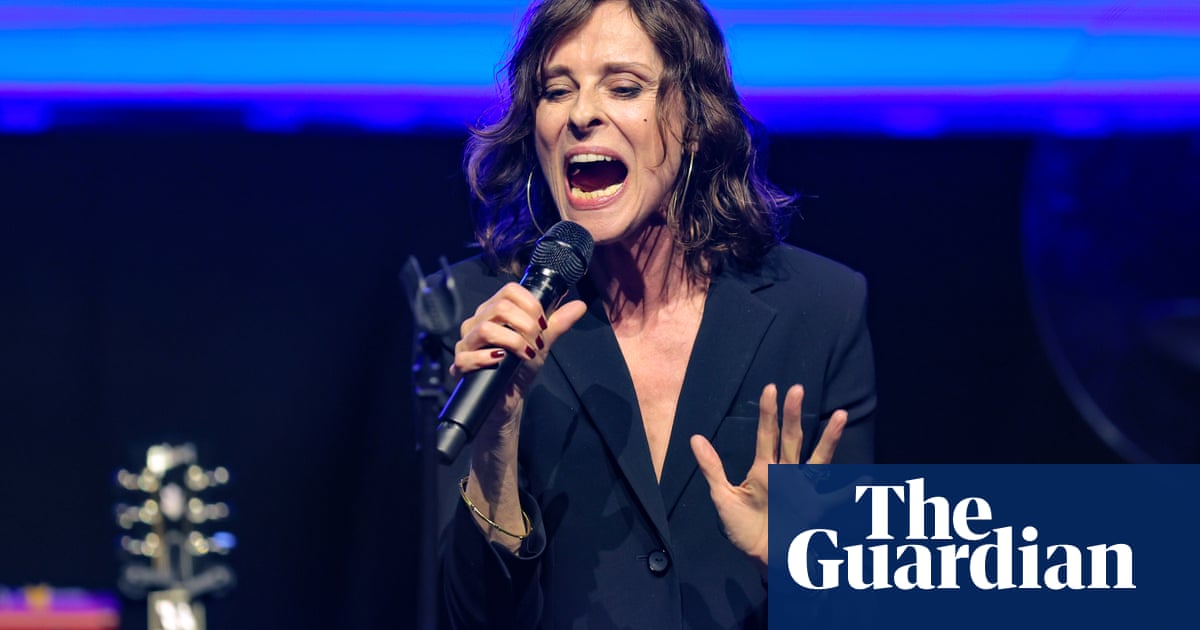
More should be done to help talented emerging musicians from the north of England, top artists have said at the inaugural Northern music awards in Manchester.
The awards, run by the music therapy charity Nordoff and Robbins, took place in a packed Albert Hall, with winners including the former One Direction singer Louis Tomlinson – who beat Sam Fender and Self Esteem to pick up artist of the year – the Courteeners, Aitch and Mel C.
Awards were presented by New Order, the former footballer Gary Neville and the mayor of Greater Manchester, Andy Burnham.
Speaking to the Guardian before picking up the northern icon award on Tuesday evening, the Rochdale singer and songwriter Lisa Stansfield said it was “disgusting” how hard the government had made it for young people to get a start in the music industry.
Highlighting the economic climate and the lack of dedicated support for the arts, Stansfield said: “There aren’t enough platforms for young musicians. It’s made very, very difficult by this government for them to do anything. They don’t have any money and they’re being charged to go everywhere to do gigs. It’s disgusting really. And this government don’t care.
“It’s shit. Do you know what I hate that people say? People who have choices always say everybody has a choice, and it’s disgusting because there are a lot of people who don’t have any choice whatsoever. And all they need is a tiny little push, that’s all they need.”
Research earlier this year found half of the UK’s most streamed artists of all time were from London, while last year was the ninth in a row that the prestigious Mercury prize was given to a London artist. The jazz quintet Ezra Collective, who won the award with their album Where I’m Meant to Be, said more funding outside London would help diversify the prize.
The Leeds band English Teacher, who won newcomer of the year at the awards, agreed. They said northern artists were having to spend a lot of time going back and forth to London for gigs and to make connections in the industry.
“Making our way up the industry ladder in the past few years I think there is definitely a sense of [it being London-centric], particularly in attitudes and where the attention is directed,” said guitarist Lewis Whiting.
His band’s frontwoman, Lily Fontaine, added that music charities had helped take them from their formation in 2020 to releasing their debut album earlier this month, but the charities consistently struggled for funding.
She also highlighted BBC Introducing, a nationwide local radio programme dedicated to unearthing new music, as a key factor in the band’s rise. The BBC announced last year it would be cutting the number of local programmes from 32 to 20 as part of cost-saving measures.
Fontaine said: “I think that was a shame because I think that having a lot of industry people in the regional areas really helps – it really helped us. I think filling those gaps, those elements that have been taken away, with something else would be great.”
The Charlatans frontman, Tim Burgess, who was presented with the 2024 Northern music award, said tackling UK-wide issues, such as better pay for musicians, would help lift all artists.
“We need to look at it and try to make sure there’s equality,” he said.
Liam Fray, of the Courteeners, said it was “probably inevitable” that so many popular artists are from the capital because “it’s expected that you would go to London to make it”.
But his home city of Manchester was thriving musically, he said, and there was a sense of optimism in the north. “What I have noticed in the last couple of years is the amount of bands moving to Manchester – I’ve got friends who are producers and they can’t move for work. Not Mancunian bands, bands from everywhere else, so that’s exciting.”












